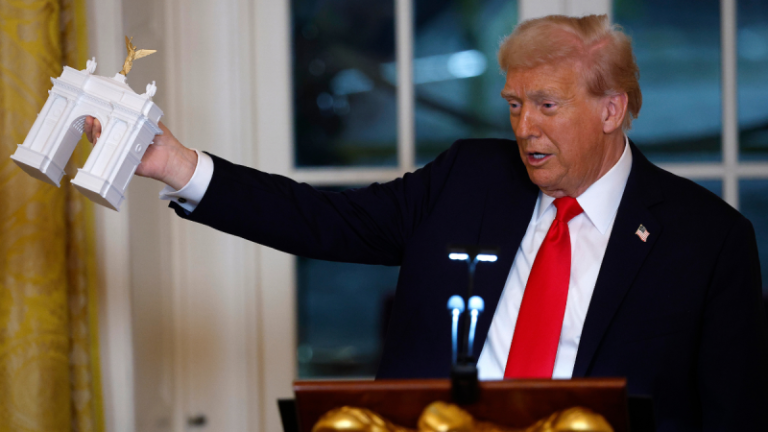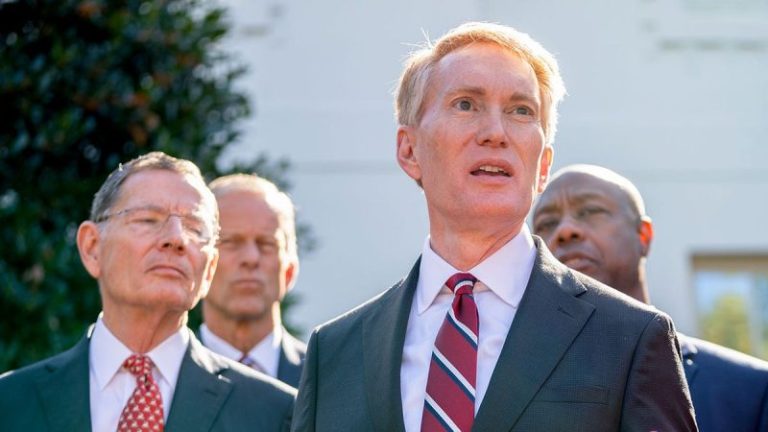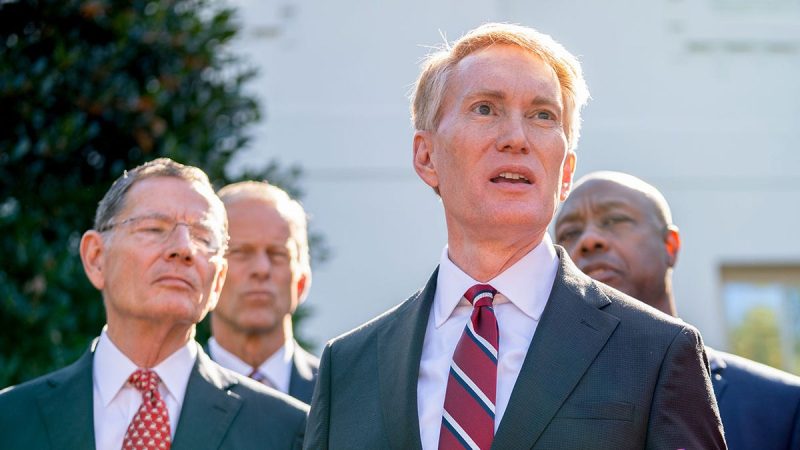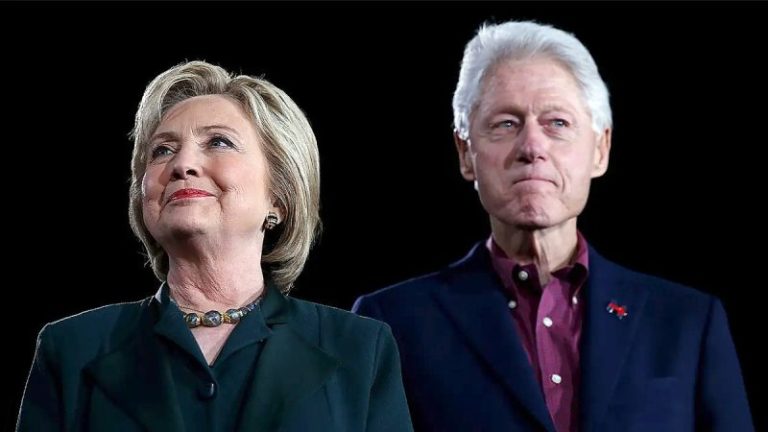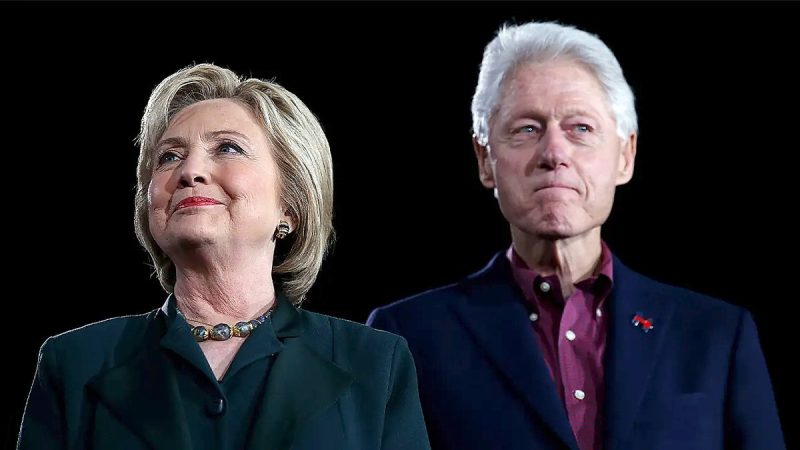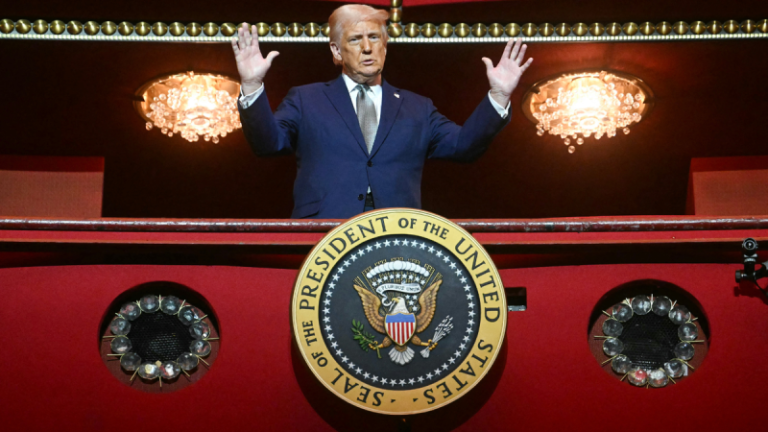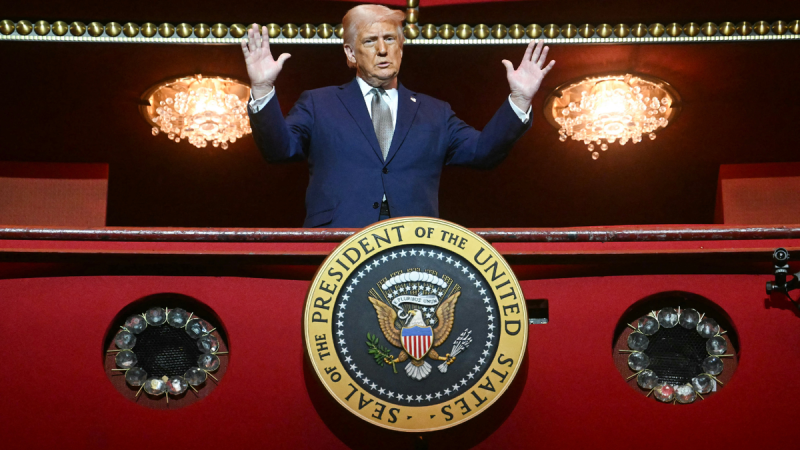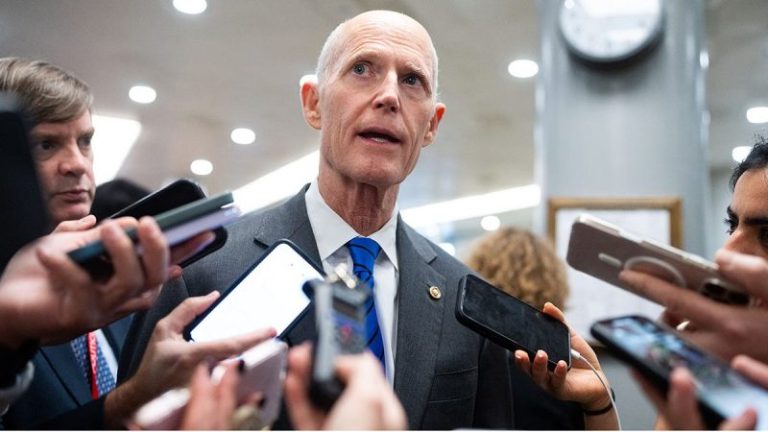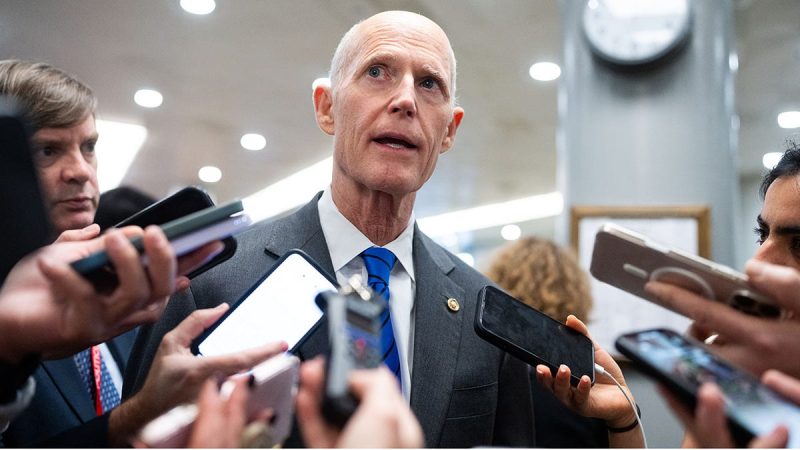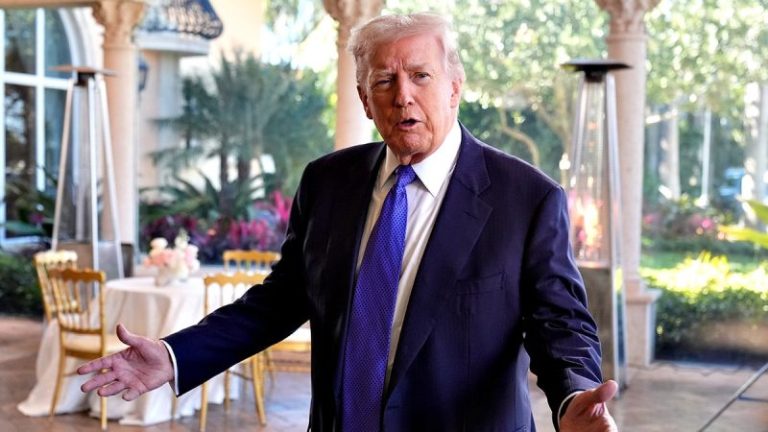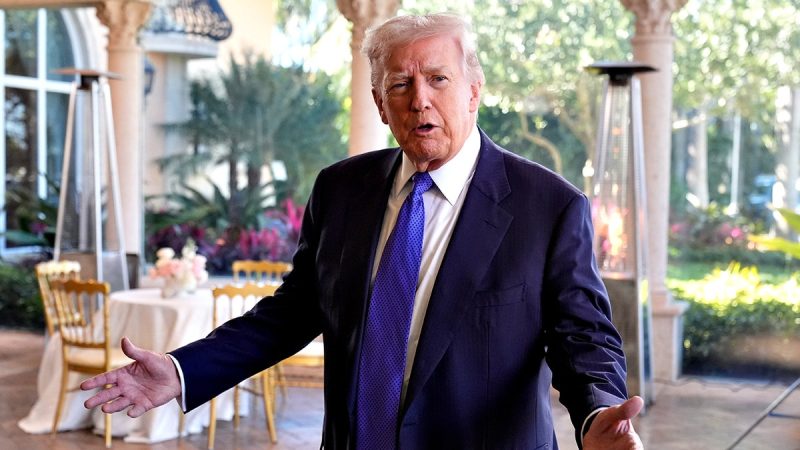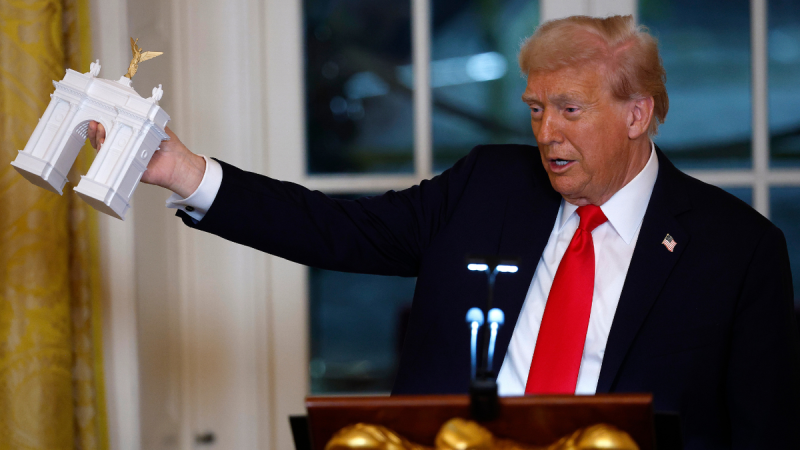
Since his return to office, President Donald Trump has undertaken a series of changes aimed at reshaping the look and feel of the White House and other iconic Washington landmarks.
Over the weekend, the president announced in a Truth Social post that the Trump Kennedy Center will close later this year for a two-year renovation.
He said the decision followed a yearlong review involving contractors, arts experts and other advisers. He added that the temporary closure would allow the renovations to be completed faster and at a higher quality than if construction were carried out while performances continued. It was not immediately clear what renovations were planned, how much it would cost and what would happen to the scheduled performances.
The Trump Kennedy Center renovations are the latest in a series of design projects the former real estate developer has pursued since returning to the White House. Read on to learn more about how the world’s most famous real estate developer is leaving his mark on Washington.
‘Arc de Trump’
In October, Trump unveiled a new monument dubbed the ‘Arc de Trump,’ which is planned to commemorate the nation’s 250th anniversary next year.
At a White House ballroom fundraising dinner, Trump shared additional details about the newest monument planned for the nation’s capital. He said he was presented with three arch models in varying sizes — small, medium and large — and said his preference was for the largest one.
If Trump chooses the largest proposed design, the arch would rise 250 feet, eclipsing the height of the Lincoln Memorial and rivaling the U.S. Capitol dome.
The monument, a near twin of Paris’s iconic Arc de Triomphe, is meant to welcome visitors crossing the Memorial Bridge from Arlington National Cemetery into the heart of the nation’s capital.
The opulent Oval Office
Trump’s taste for opulence is unmistakable in the Oval Office, where golden accents now decorate the nation’s most iconic workspace, a reflection of his personal style. Last March, Trump told Fox News host Laura Ingraham during a tour of the Oval Office that the room ‘needed a little life’ when asked about the gold details.
‘Throughout the years, people have tried to come up with a gold paint that would look like gold, and they’ve never been able to do it,’ Trump told Ingraham. ‘You’ve never been able to match gold with gold paint, that’s why it’s gold,’ Trump added.
Since then, Trump has added gold accents throughout the Oval Office to include decorative details along the ceiling and around the doorway trim. Even the cherubs inside the door frames were given a gilded makeover.
White House spokesperson Davis Ingle previously told Fox News Digital that the gold Trump added to the Oval Office ‘is of the highest quality,’ declining to provide further details.
The spokesperson also said that Trump personally covered the cost of the gold accents, though they did not specify how much gold was added or how much Trump spent.
The White House ‘walk of fame’
Outside the Oval Office, the Trump administration unveiled the ‘Presidential Walk of Fame,’ a series of portraits of past presidents now displayed along the West Wing colonnade. The portrait of former President Joe Biden features his signature, created with an autopen, a machine that holds a pen and reproduces a person’s handwriting through programmed movements.
The Trump administration has also installed several large mirrors in gold frames along the walkway.
The luxe Lincoln bathroom
Trump said he renovated the Lincoln bathroom in the White House because it did not reflect the style of President Abraham Lincoln’s era.
‘I renovated the Lincoln Bathroom in the White House. It was renovated in the 1940s in an Art Deco green tile style, which was totally inappropriate for the Lincoln Era,’ Trump wrote in an Oct. 31 Truth Social post.
‘I did it in black and white polished statuary marble. This was very appropriate for the time of Abraham Lincoln and in fact could be the marble that was originally there,’ he added.
No immediate details were available on the cost of the bathroom renovation.
A ballroom fit for the White House
Among the largest projects currently underway is a 90,000-square-foot White House ballroom designed to accommodate roughly 650 seated guests.
On July 31, White House press secretary Karoline Leavitt announced the planned construction of the sprawling ballroom. ‘The White House is currently unable to host major functions honoring world leaders in other countries without having to install a large and unsightly tent approximately 100 yards away from the main building’s entrance,’ Leavitt said during a press briefing, adding the new ballroom will be ‘a much-needed and exquisite addition.’
The White House does not have a formal ballroom, and the new ballroom will take the place of the East Wing. Construction has already begun on the White House grounds, and the estimated cost is north of $200 million and will be financed by Trump and private donors.
Towering American flags on the White House lawn
Ahead of Independence Day, Trump also personally financed the installation of two 88-foot flagpoles with American flags in front of and behind the White House, each reportedly costing around $50,000. The new flags on the North and South Lawns were raised at a June 18 ceremony.
A paved Rose Garden lawn
Elsewhere on the White House grounds, Trump directed the addition of stone pavers to the Rose Garden lawn, a change designed to better accommodate press conferences and ceremonial events.
Framed by magnolia and crabapple trees, the Rose Garden has hosted everything from diplomatic welcomes to first lady initiatives.
The White House declined to say what additional renovation projects were in the works.

